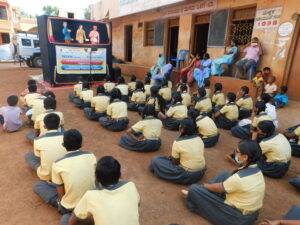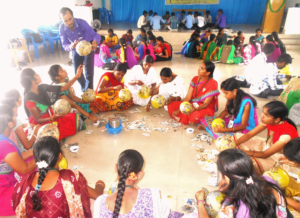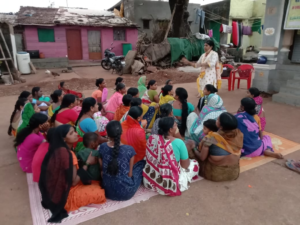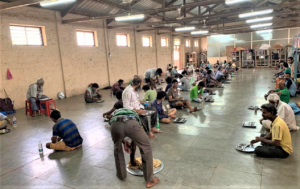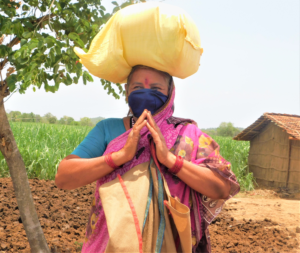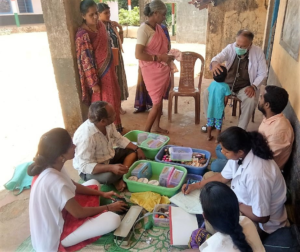Children Empowerment For Good
The Predicament
An agent of change is someone who sees an issue in their community, large or small, and does something to take action for substantial change. Given the emotional quotient, ability to see into the future and think from various angles, women can be wonderful agents of change and should be encouraged to play more prominent roles in society.
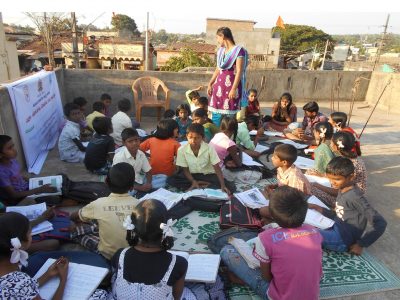
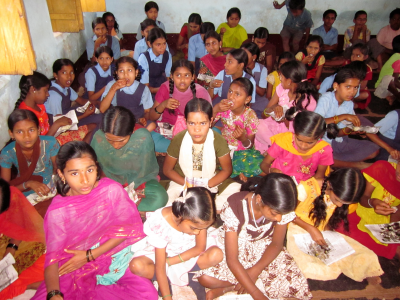
Who is Devadasi?
Devadasi is a practice that is as old as the culture of India. Devadasi literally means “servant of God”. According to this vile practice, young, prepubertal girls are dedicated as the bride of God, after which they are prohibited to marry a mortal. The custom allowed Davadasi to have sexual partners. Formerly Devadasis had a much higher social status among the Hindu community but later and henceforth was delegated to a mere sex worker, who the upper caste community members exploit.
Why is it so cruel?
The Devadasi system is not only the exploitation of girls; it is the institutionalized abuse of girls. It is the exploitation of Dalits, the lower class of untouchables; it is the religious sanction given to prostitution of helpless economically and socially deprived families. Inherent in this system is the fatalistic belief that a certain section of the human population, the lower caste, is meant to serve the ‘higher caste’s superior men’. Inherent in it is the feudal-lord-temple-priest-nexus, where the priest, already having a psychological hold over people’s minds, uses his power to give ‘religious sanction’ to the practice by declaring it ‘sacred’. They are made to continue the tradition, which has locked them into a prescribed and highly stigmatized social role for centuries. Dedication of girls is practised in so-called ‘untouchables’ or the poor Dalit communities (Scheduled Caste, Scheduled Tribe families). Factors like religious beliefs, caste system, male domination and economic stress drive this phenomenon.
What says the Indian LAW?
The practice of dedicating girls as Devadasi is a banned and punishable offence under the Karnataka Devadasi (Prohibition of Dedication) Act 1984 (2010). However, it still practised unnoticeably in many parts of Karnataka due to a lack of proactive efforts from the Government & law enforcement agencies. The prevailing socio-cultural solid beliefs with the selected communities is a prime factor that perpetuated this illicit practice.
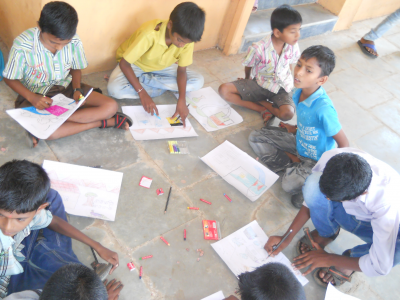
What are the repercussions when the law is failing?
Children of Devadasis are often vulnerable to sexual exploitation. A survey conducted by the Government of Karnataka in 2009 concluded that there are 46,660 Devadasi women in North Karnataka. However, recent research conducted by Karnataka State Women’s University (with TdH support) estimates that there are more than 80,000 Devadasi women in North Karnataka, and close to 20% of them are less than 18 years old. The Devadasi system has become a root cause for young girls entering sex work. It is important for police to take proactive actions with due understanding of the implications of the POCSO Act on dedication. The necessary policy changes for full implementation of available welfare schemes should be considered and acted upon by the police to prevent further dedications.
The major livelihood source for Devadasi and Dalit families is agriculture-related activities and sex work. Livelihood from agriculture is often uncertain due to the highly erratic rainfall patterns. Entitlement for 150 days work per family at Rs.205 per day under Government’s Employment Guarantee Scheme is not solving their livelihood problems. This is because the process involved is difficult, and they don’t get the work-labour charges easily. Due to lack of education and other social issues, they cannot give much importance to the child’s development. The parents do not acknowledge the long-term benefits of education, and they are unaware of their rights to Government benefits and resources. Due to economic compulsions from Devadasi and Dalit families, out-of-school and dropout children are engaged in unskilled labour work. Children studying from 6th standard (11 years) to Pre-University Course (18 years) are vulnerable to become dropouts. They are not provided with proper career guidance and skill-oriented education opportunities. Disadvantaged socioeconomic family backgrounds and adverse attitudes to education is an added force for the children to get dedicated as Devadasi.
The Solution
SEVAK confronts the illicit and socially unethical system of Devadasi with the project to eradicate the practice completely from the state of Karnataka. SEVAK has been Implementing This project in 15 villages. The villages in the Bagalkote district includes Kerur, Nagaramunnoli, Jodakurali, Kadakalat, Shiragaon, Nippani and Pattanakudi of Chikkodi. While the villages in Belagavi District are Gokak, Shindikurabet, Kalloli, Tukkanatti, Shivapur, Khanatti, Mudalagi and Mallapur of Gokak Taluka. The project is implemented in Belagavi District through a local AMMA Foundation, Raibag, and Chaitanya AIDs Prevention Society in Bagalkote district. The project covering a total of 1200 identified vulnerable girls children with the focus on the protection of child rights, Prevention of dedication as Devadasi, Prevention of child exploitation in any other forms, creating awareness to stop child marriage as well.
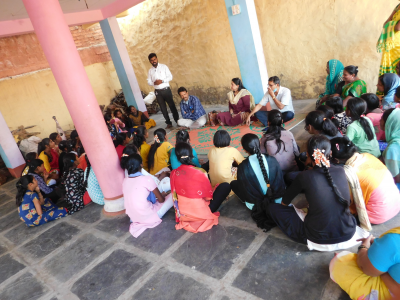
Activities under this project
The programme’s overall objective is to strengthen the systems by advocating with Government and Law enforcement agencies; to prevent children from sexual exploitation through the Devadasi system by mass awareness and advocacy campaigns. Activities of the programme cover advocacy activities at the community level and at the Government level for the systems to prevent children from exploitation. Kishori group members are capacitated to advocate for the implementation of laws for the Prevention of the dedication of children as Devadasi. Also, programme activities aim to rehabilitate the Devadasi system’s victims and prevent vulnerable children from entering sexual abuse/sexual exploitation by dedication as Devadasi.
Sensitization on the dedication of children and the actions for the prohibition is part of the programme for religious leaders and priests, Government officials from the department of women and child development, the District Child Protection Unit, Child Welfare Committee, CHILDLINE staff, and Police personnel. This is to motivate them to take appropriate actions to prevent the dedication of girls as Devadasi and child marriages. Thus, the project approach is a combination of prevention, provision and promotion strategies with the actors.
Also, SEVAK has been working with Government & Law Enforcement agencies, Children below the age group of 18 years, Community and CSOs in the above-mentioned project locations.
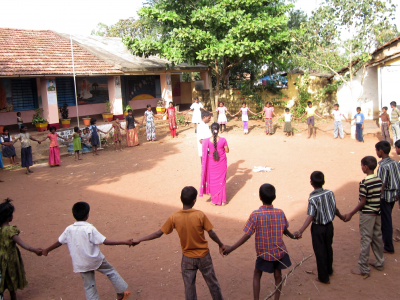
Be a part of the beacon that brings hope.
While the sensitization on the dedication of children and the actions for prohibition may demand proceeding from those in the position of power, we believe that your participation can bring a well-deserved change/action a lot faster. We are proud to be a part of this mission that aims to one day altogether abolish the Devadasi system in the state of Karnataka by empowering and educating girls who have fallen into this system. Our awareness program and proactive measure are intended to stop the endless cycle of ignorance and oppression. Join us and be a part of this vital mission that puts a stop to this awful practice
About Us

S E V A K stands for Society for Empowerment through Voluntary Action in Karnataka. S E V A K was founded in the year 2009 as a registered society registered under the Karnataka Societies Registration Act, 1960 in Belgaum district, Belgaum.
Links
- Home
- About Us
- Projects
- IMAGE K
- Children Empowerment for Good
- Community Health
- Community Monitorin of PDS
- Covid-19 Crises Response
- Empowerment of Women Domestic workers in Belgaum
- North Karnataka Floods Relief
- Initiating workshops on Nutrition Education for Women and Adolescent Girls
- Science Communication Through Traditional Puppetry
- Self Help Group & Women Empowerment
- Community Awareness for Responding Covid 19
- Note Book Distribution for the Students
- What We Do
- Resources
- Gallery
- News Letter
- Impact
- Contact Us
Contact Us
-
Location
No. 3826, Nityadhar building, Tipu Sultan Nagar, Machhe, Belagavi – 590014 Karnataka, India
-
Phone No
08312412712 +91 9448193220
-
Email
sevakbelgaum@gmail.com
